Robotic Esophageal Cancer Surgery in Ahmedabad

- Center of Excellence for Robotic Surgery
- Management of all Esophageal Tumours
- 10+ years in Robotic Surgery

Getting diagnosed with esophageal cancer can be hard to deal with. Yet, having a knowledgeable doctor can significantly help. Dr. Harsh Shah provides one of the best robotic esophageal cancer surgery in Ahmedabad, Gujarat and across India. 15+ years of experience in treating esophageal cancer and many years of expertise in robotic surgery. With Dr. Shah, you're in good hands to get the best treatments available.
11750+ Patients
11750+ Patients have been successfully treated
15+ Years
15+ years of experience as a esophageal cancer specialist
24 + Awards
24+ Awards received by Dr. Shah for his achievements
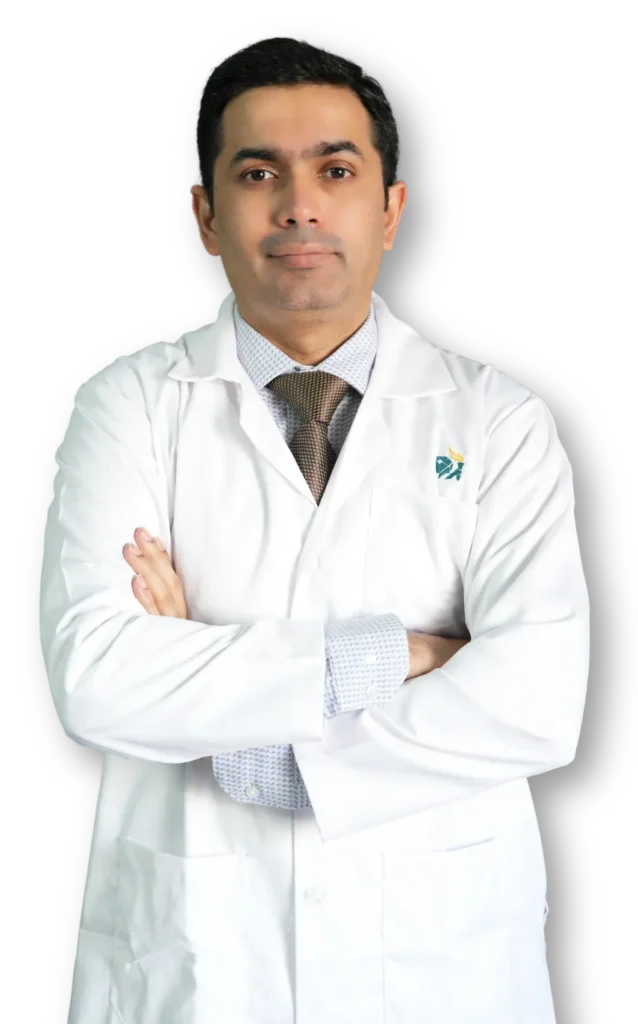
Dr. Harsh Shah
MS, DrNB(GI), MCh(GI)
Meet
Dr. Harsh Shah
- Leading GI & HPB Robotic Cancer Surgeon in India
- 15+ years of experience in treating various types of Gastrointestinal cancers
- Successfully treated many Esophageal cancer patients with Robotic surgery
Management of Esophageal cancer involves proper diagnosis & early treatment
Diagnosis is performed with CT scan, PET-CT scan, UGIE & biopsy.
The treatment usually involves neo-adjuvant chemoradiation followed by surgery.
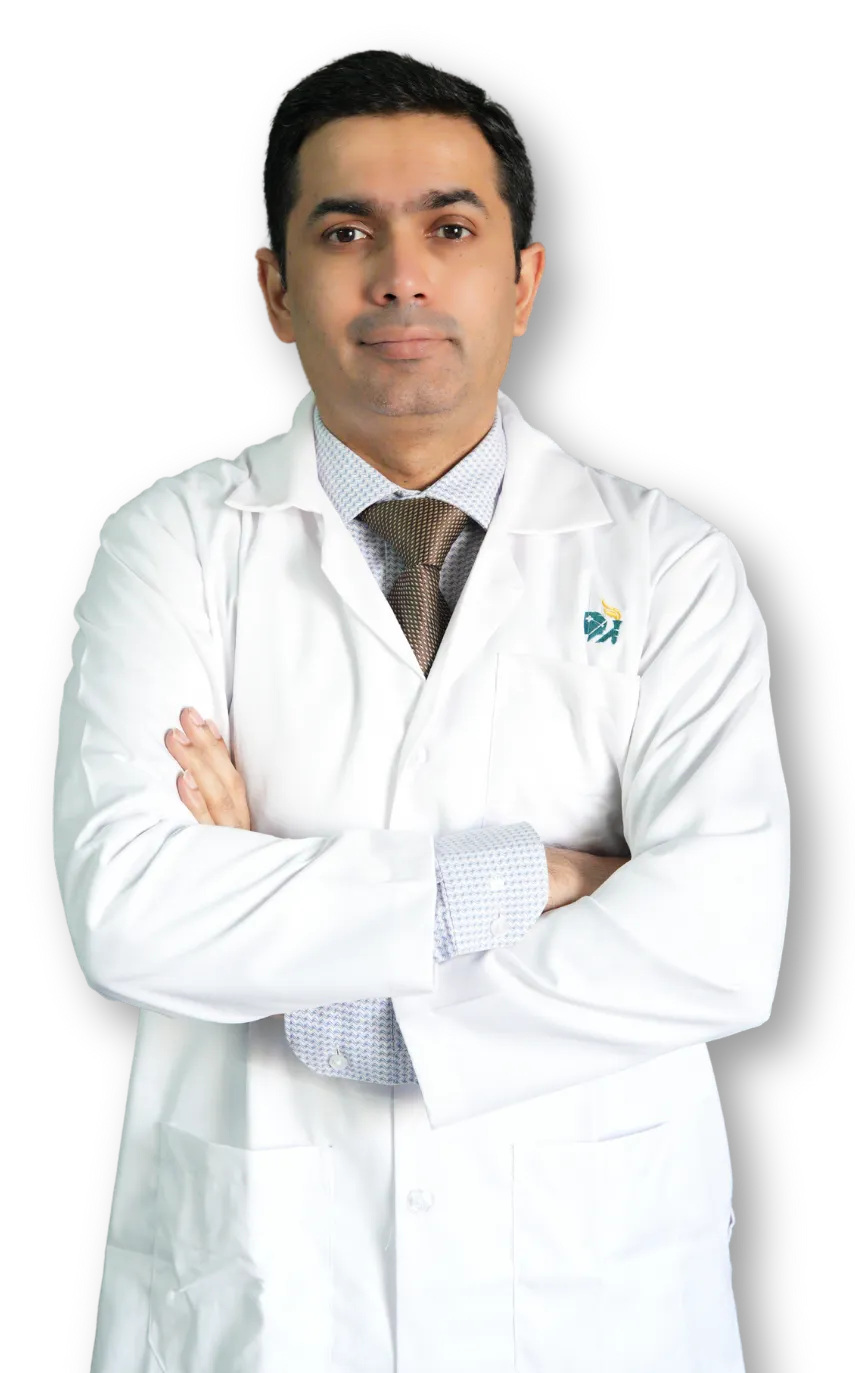
What is esophageal cancer?
There are two types of esophagus cancer:

Esophageal cancer can occur in different locations, including:
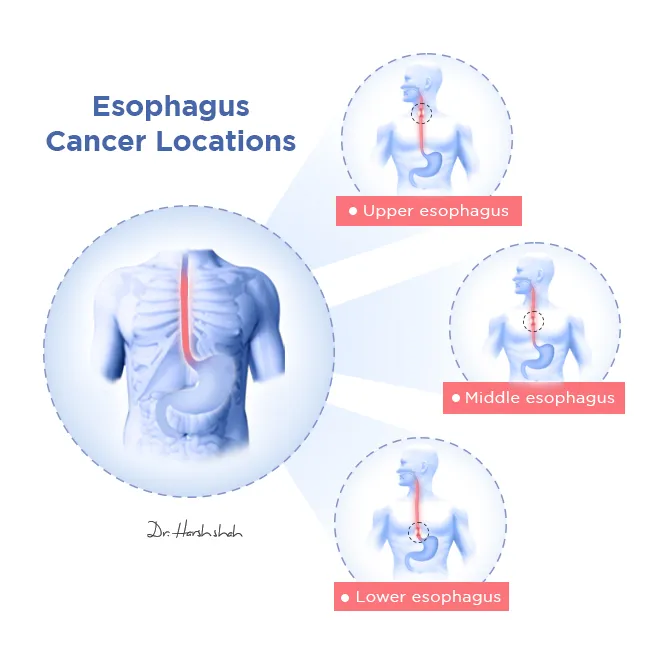
Upper Esophagus: This cancer can start in the top part of the esophagus, close to the throat, sometimes called the cervical esophagus.
Middle Esophagus: It’s also common for esophageal cancer to be in the middle section, which is between the top and bottom parts.
Lower Esophagus: Cancer can also happen in the bottom part of the esophagus, right where it connects to the stomach. This area is known as the gastroesophageal junction.
There are various symptoms of esophageal cancer, including:
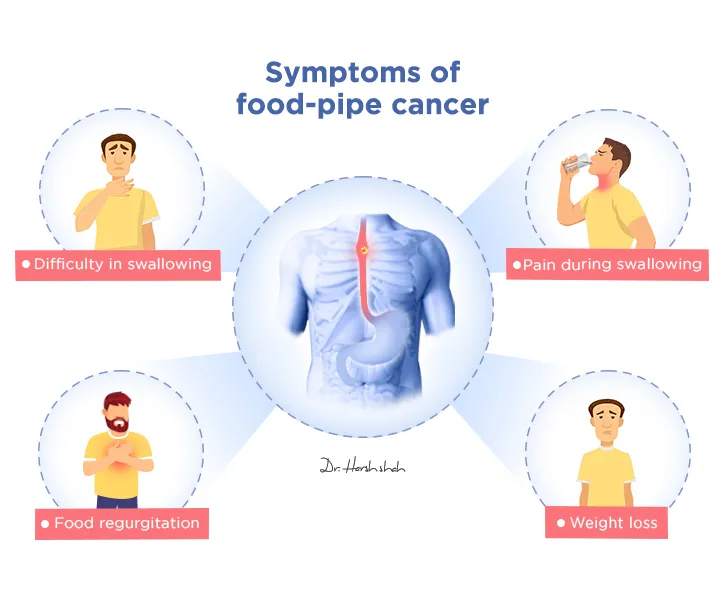
⦿ Trouble swallowing or feeling like food is stuck in your throat
⦿ Losing weight without trying
⦿ Chest pain, discomfort, or a burning feeling
⦿ A cough that doesn’t go away
⦿ Hoarseness or a change in your voice
⦿ Heartburn or acid reflux that gets worse
⦿ Feeling tired or weak
There are three major treatments for food-pipe cancer include:

Surgery: One common way to treat esophageal cancer is by taking out the cancerous part through surgery. Sometimes this means removing part of the esophagus, or in serious cases, taking out the whole esophagus. It is performed after the chemo/radiation.
Radiation Therapy: This treatment uses strong X-rays or other kinds of radiation to kill cancer cells or make tumors smaller. It can be done before surgery to reduce the tumor size, after surgery to get rid of any left-behind cancer cells, or as the main treatment sometimes.
Chemotherapy: This involves using special drugs to fight cancer cells. Chemotherapy can work on its own or together with surgery or radiation therapy to tackle the cancer from multiple angles.
What is Esophageal cancer and Treatment options for It? In Gujarati
Surgical Videos
Robot-Assisted Esophagectomy for Carcinoma Esophagus
Robot-Assisted Esophagectomy for Carcinoma Esophagus
Happy Patients



Robotic Cancer Surgery in Ahmedabad


Surgical Videos & Photographs
Explore surgical videos & photographs with caution. Please be advised that viewer discretion is recommended.
Key Benefits of Robotic Surgery for Esophageal Cancer
- Robotic surgery offers unmatched accuracy, reducing the risk of complications.
- Smaller incisions technique involves tiny cuts, leading to less scarring.
- Patients generally experience quicker healing times.
- Smaller incisions mean less postoperative discomfort.
- The minimally invasive approach decreases the chance of infections.
- Precision tools lead to minimal bleeding during the operation.
- Shorter hospital stay for many patients compared to traditional surgery.
- Enhanced precision can improve the surgery's success rate.
- Patients often retain more of their normal functions.

Dr Harsh Shah on Akashvani
Topic - Robotic Surgery
Tap Below to Listen

Dr Harsh Shah on Akashvani
Topic - Robotic Surgery
Tap Below to Listen
Why Robotic Esophageal Cancer Surgery is the best choice for you or your loved ones?
| Types of Surgery | Description | Benefits |
|---|---|---|
| Open Surgery | Involves a large incision to remove the tumor | Allows for direct access and removal of large tumors |
| Laparoscopic Surgery | Uses small incisions and a camera to guide the surgery | Less invasive, with smaller incisions and shorter recovery times |
| Robotic Surgery | Keyhole surgery | Less Pain, Less hospital stay, Early recovery |
| Better View (3D, 10x, HD) | Less blood loss, Better nerve preservation | |
| Flexible Instruments | Enhances Precision, Enhances Accuracy, Early functional recovery |
Types of Robotic Surgeries for Esophageal Cancer Treatment
1
Adenocarcinoma
2
Squamous Cell Carcinoma
3
Early-stage Cancers
4
Locally Advanced Cancers
Why Choose Dr. Harsh Shah's Robotic Esophageal Cancer Surgery?
Go for Dr. Harsh Shah for best skills in robotic cancer surgery, especially with the Da Vinci System, making surgeries accurate and quick to recover from. His advanced Robotic Surgery Centre is available in Ahmedabad, Gujarat.
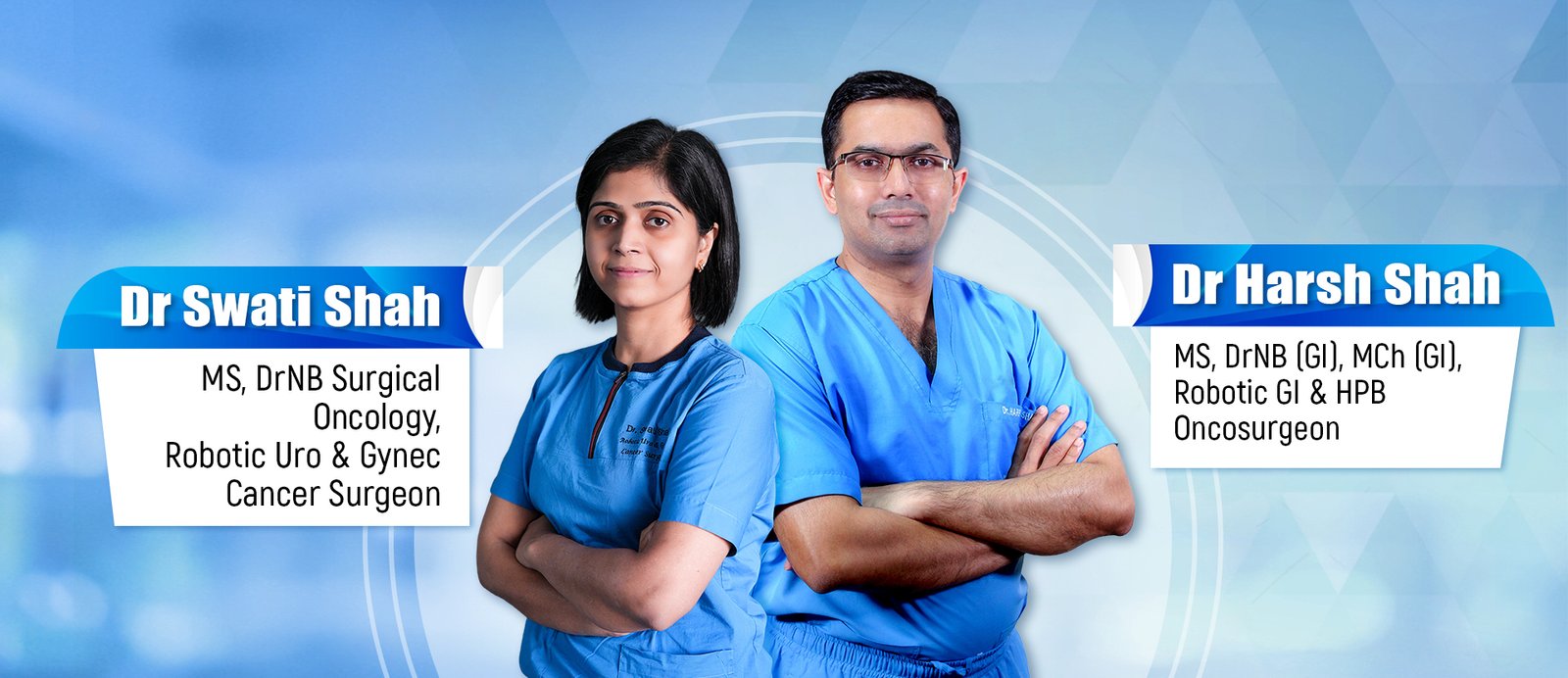
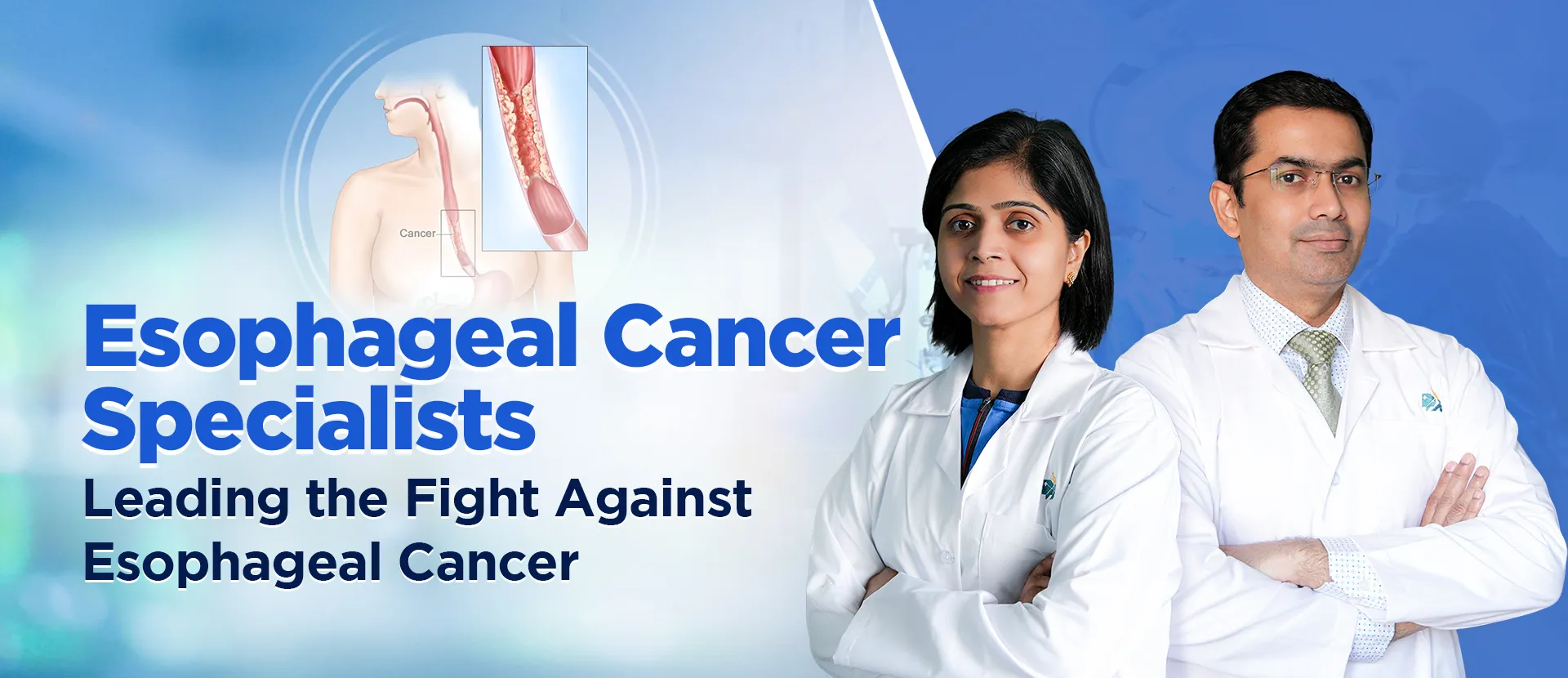
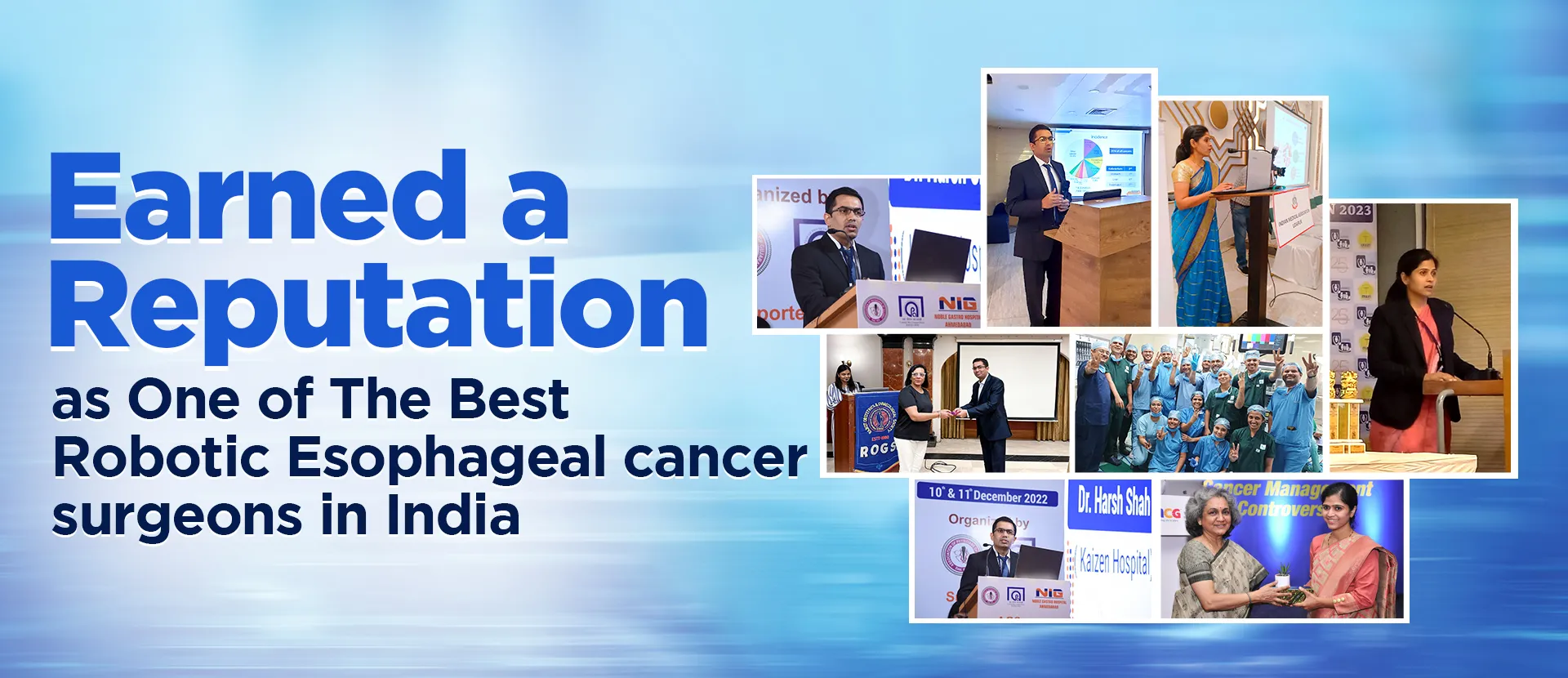
Infrastructure
The Hospital also has 50+ bedded ICU with the latest support systems such as ventilators, dialysis machines & a team of best critical care doctors.
Radilogy department is fully equipped with latest CT Scan & MRI machines. The hospital also has an interventional radiology suit.
Contact Robotic Surgery Centre
We provide a 24*7 emergency care.
The Revolution of Robotic Surgery in Esophageal Cancer Treatment
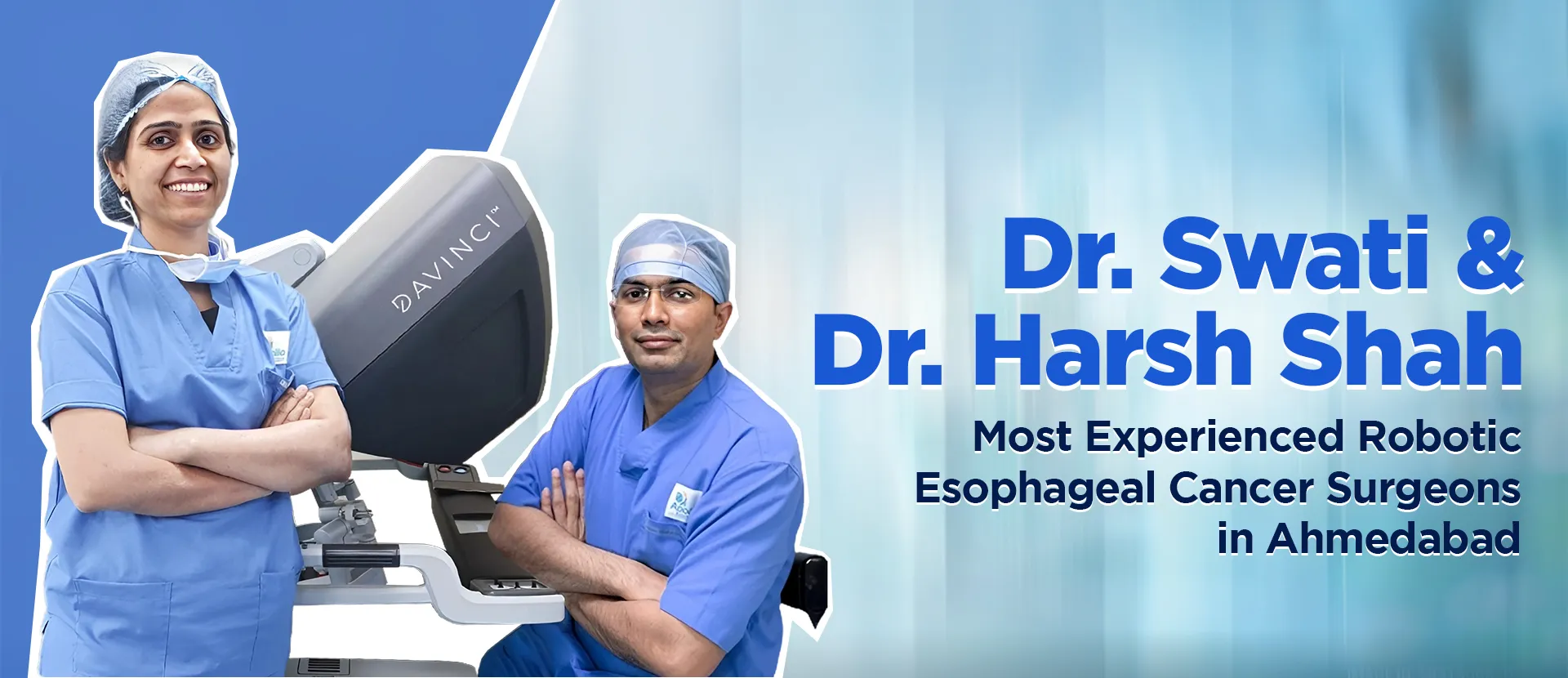
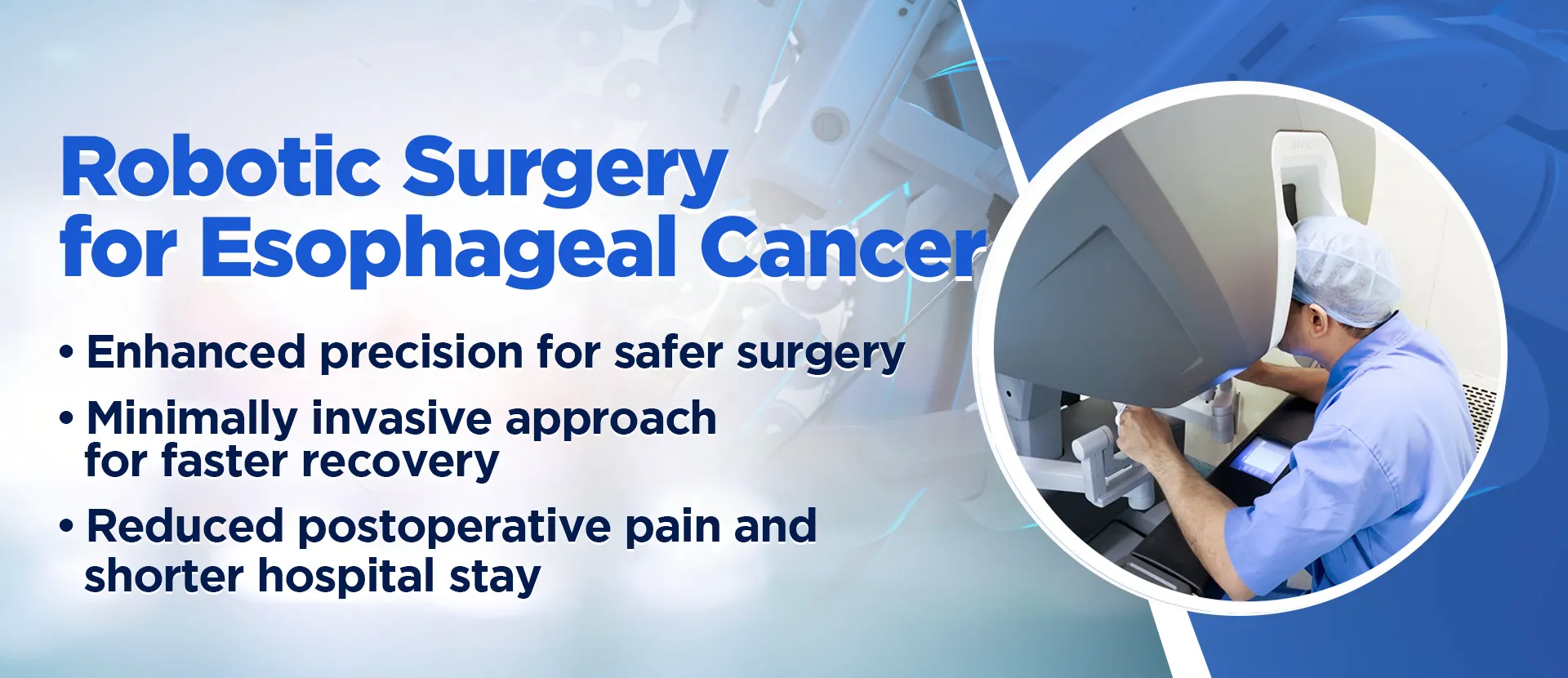
Frequently Asked Questions
Esophageal cancer is managed by a multidisciplinary team of healthcare professionals, including surgical oncologists, medical oncologists, and radiation oncologists.
Treatment modalities for esophageal cancer encompass a range of options such as surgery, radiation therapy, chemotherapy, targeted therapy, immunotherapy, and palliative care. Selection among these approaches is determined by factors including the cancer’s stage and the patient’s individual health profile.
Esophageal cancer can be potentially curable, particularly if diagnosed in its early stages. The likelihood of a cure is contingent upon factors such as the cancer’s stage, location, and the overall health status of the patient.
Tobacco and Alcohol Use: Both increase the risk of esophageal cancer significantly.
Gastroesophageal Reflux Disease (GERD): Chronic acid reflux can lead to Barrett’s esophagus, a precursor to cancer.
Diet and Obesity: Poor diet, obesity, and lack of physical activity are known risk factors.
The final stage of esophageal cancer, known as stage 4 or advanced/metastatic cancer, indicates the spread of cancer cells to distant organs or lymph nodes. Palliative care is primarily focused on symptom management and enhancing the patient’s quality of life.
Get in touch
We provide a 24*7 emergency care.
If you have any kind of Uro, Gynec, GI & HPB Cancers related medial emergency, visit Apollo Hospital. An expert doctors is always available & treatment will be provided at once.
